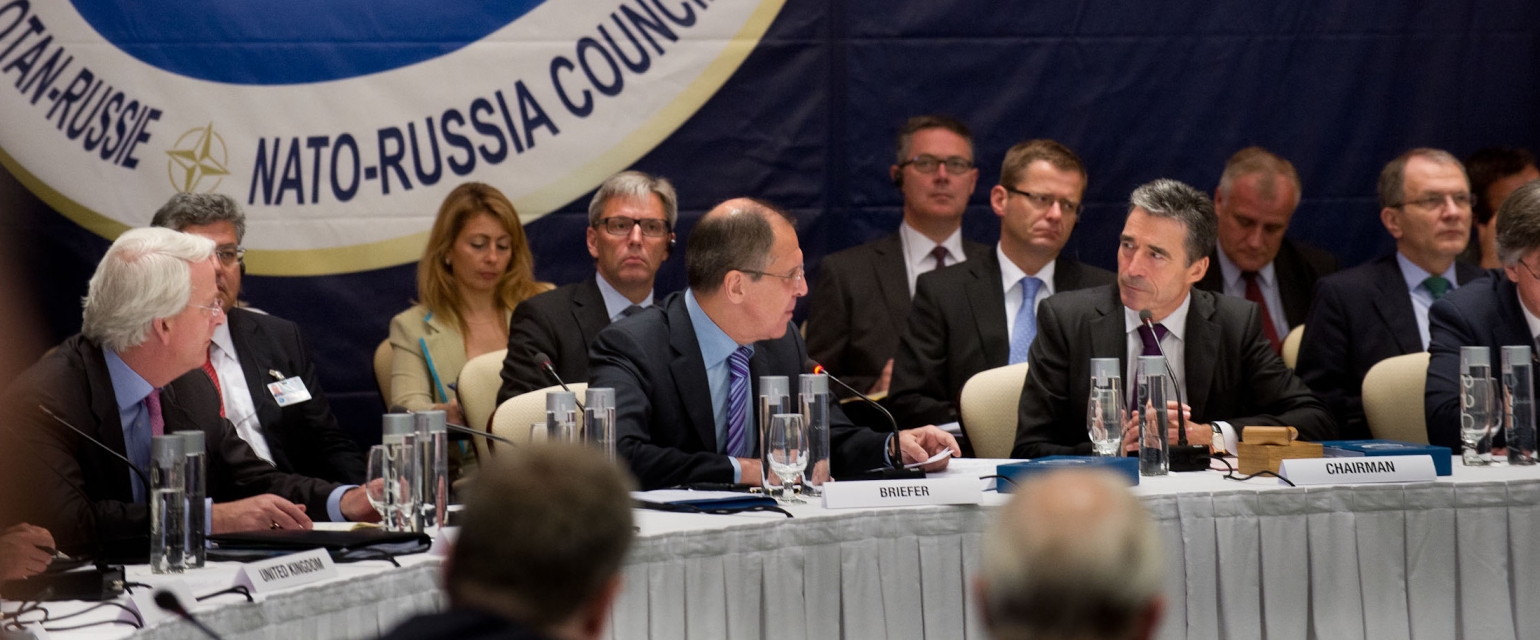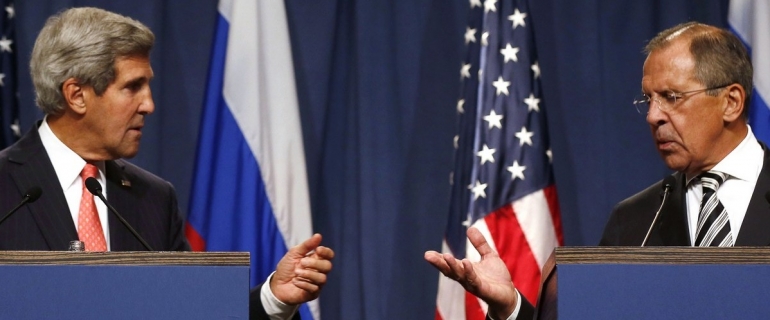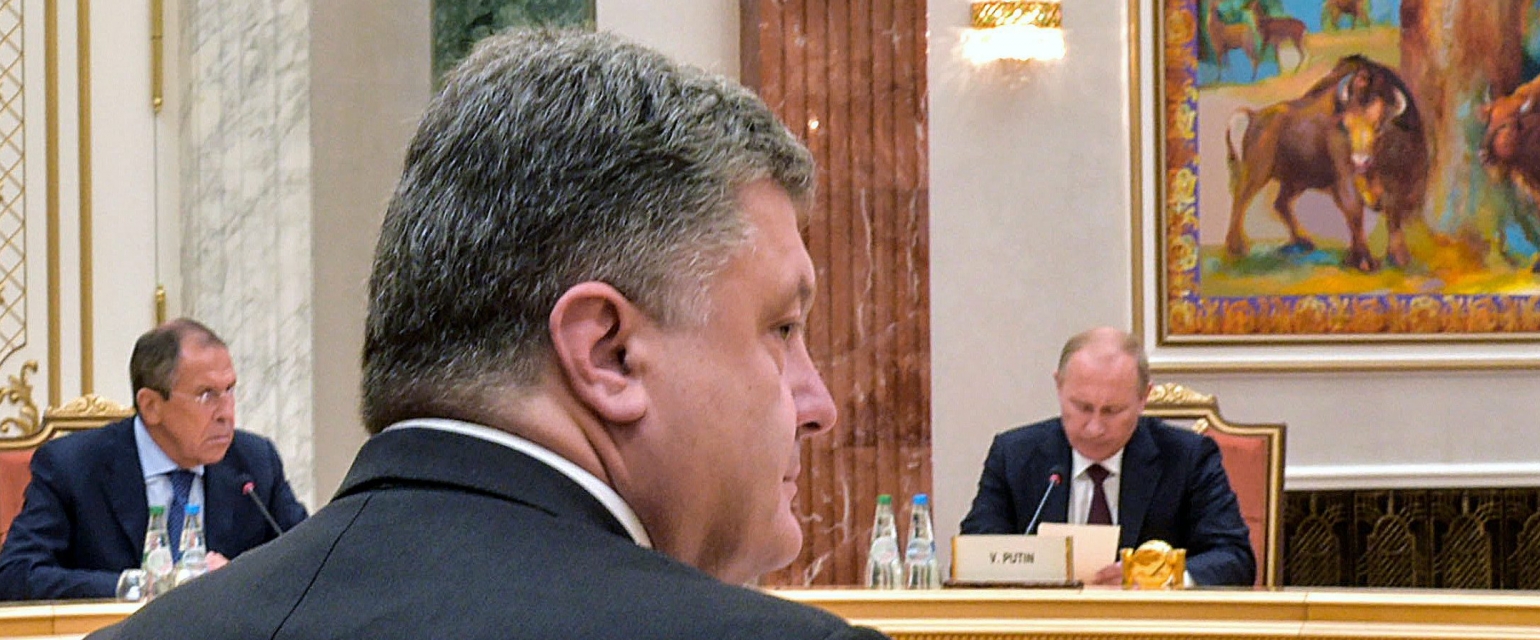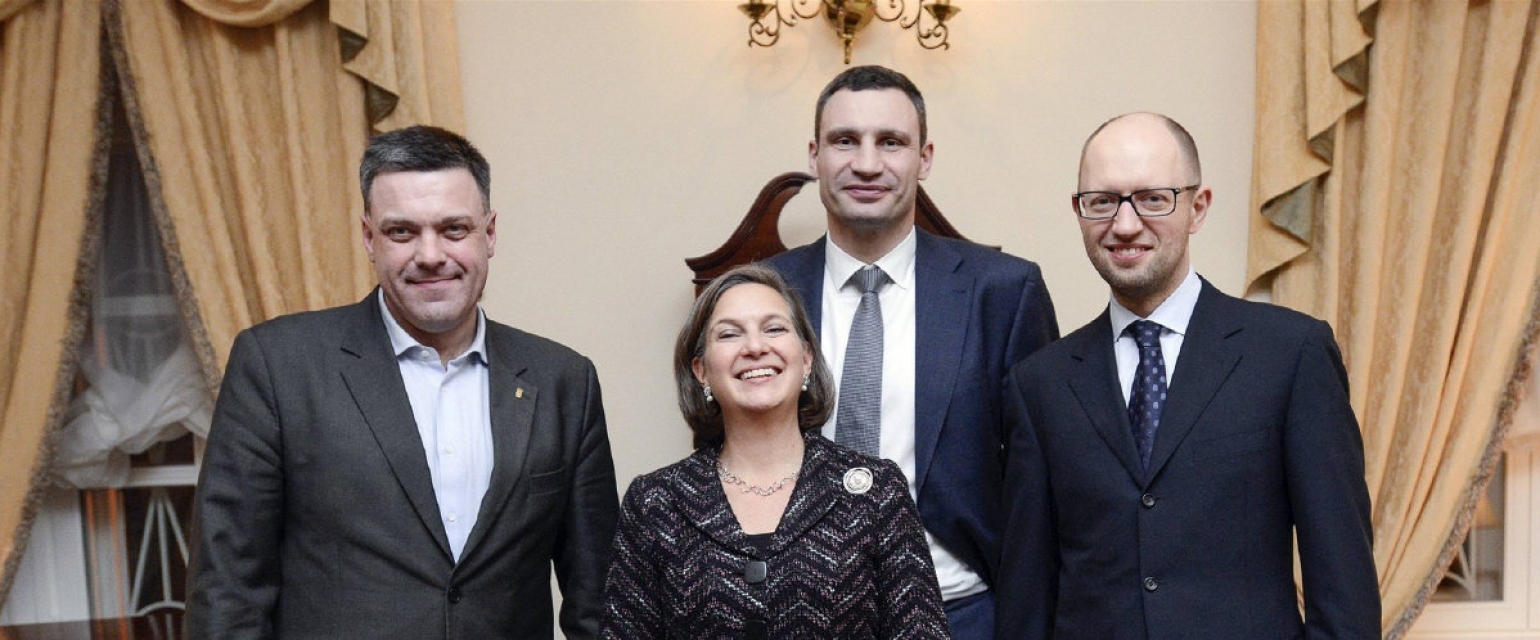

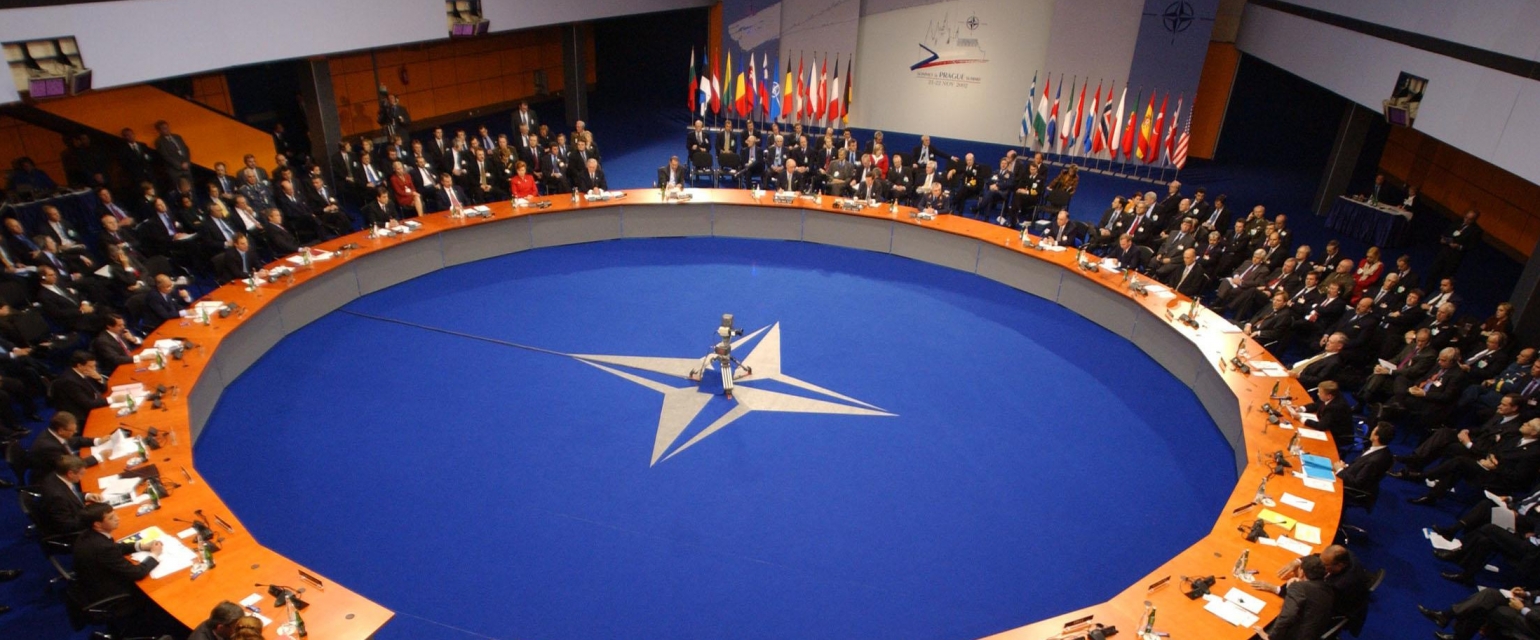
The text was originally published in Russian
With the Ukrainian crisis, for the first time in 25 years the NATO has been confronted with the question – what are the security guarantees for its members worth? The foremost anxiety for Brussels is the threat of Russian hybrid aggression that scares East European members of the Alliance. The recent large-scale drill at the Russian borders are to show Moscow that allies are on the alert.
Notably, the Westerners’ astonishment is caused mostly by how Russia acted in Crimea and, as some think, is acting in Donbass – but by the motives of Russian policies. Ones, who are seizing the initiative within NATO at the moment, are those who call for war – not talks – with Russia. The paradox of soldiers fighting with no identifying signs or under no flag has compelled them completely.
It’s the hour of triumph for the Baltic states. Their leadership have been crying wolves since early 1990s every time the Pskov division of the Russian airborne troops started their military manoeuvres. And now, when the ‘wolves’ have finally come, the Baltic politicians are anxious to get heard this time. The loudest is the voice of Lithuanian President Dalia Grybauskaitė, woman of a challenging fate:
“Ukraine is now fighting for the sake of the whole world, for the sake of all of us. If a terrorist state that is aggressive towards its neighbor is not stopped, its aggression will expand into Europe and even further”.
Her understanding of the Ukrainian crisis is limited to the Russian occupation of Crimea and supporting Donbass separatists – and this is only the beginning. The next stage is allegedly annexation of the East European countries, including – naturally – Lithuania.
The Baltic states’ concerns reached Washington, which hastened to assure its allies that for NATO “defence of Tallin, Riga and Vilnius is as important as defence of Paris, Berlin or London”. To strengthen the confidence within the Alliance in the necessity to protect its new members President Barack Obama visited Estonia September 2014 to state that:
“Undoubtedly, the Baltic states have made our Alliance stronger”.
The statement confused the founding members of the Alliance, who immediately started to work on pans to protect the allies that strengthened NATO that noticeably.
NATO’s special concern is the information war that they believe Russia is skillfully waging. NATO Allied Commander in Europe Philip Breedlove has once noted:
“This is the most amazing blitzkrieg in the history of information wars”.
Poland is another country that is deeply concerned about the diversity of opinions in Europe on the Ukrainian crisis. Chief of the National Security Bureau Stanisław Koziej is convinced that Poland has undoubtedly become a victim of the Russian information aggression that consists of “TV-programs, radio broadcasting and comments by Internet-trolls, which are coordinated from one common center”. In order to cut the sedition and the efforts of Russian trolls to influence NATO states information space the latest summit of the Alliance held in 2014 in Lithuania decided create the Strategic Communications Center.
Each of the East European countries in their own way are striving to demonstrate their usefulness within NATO and that they deserve their security guarantees.
Some do it in an especially belligerent manner – like Latvia and Lithuania, who promised to support the US in bombing Syria in 2013. However, when it came to defending their own borders Vilnius and Riga decided to shift the burden onto their NATO allies.
The Lithuanian Defence Ministry has published instructions on what to do in case of war. It urges Lithuanians to stay vigilant and immediately inform the police about any suspicious gatherings of armed people, especially if “dressed in green”. It is recommended to resist the inevitable occupation of Lithuania peacefully by means of sabotage. Defence Minister Juozas Olekas gave detailed instructions on how to do it:
“You come to work, but you do everything very slowly as if the work is not getting on, you drop your pencil now and then, and you cannot write anything”.
Unlike Lithuania, Poland has decided to resist a potential aggressor under arms. The Polish government has declared a 33-billion USD Armed Forces Modernization Plan, and is planning a large-scale national military exercises. Meanwhile, the Poles manage to follow the latest developments in Ukraine and ascertain that the country in on the brink of collapse. Polish Deputy Prime Minister Janusz Piechociński has recently noted that the Ukrainian economy is “on its way out” and urged to get prepared for an influx of refugees in Poland.
Meanwhile, it is the US who is playing the main role in confronting invisible men in green in Baltics and Eastern Europe. With the last year’s developments in Crimea in progress Washington organized the off-schedule military exercises Operation Atlantic Resolve, and has held a number of activities in the NATO states bordering Russia since then. Financial backing was off-schedule as well realized through a Congress resolution – and was also rather poor by American counting making up around 1 billion USD. The objective of the Operation is training on the territories of the new NATO allies with participation of American units under conditions of their constant rotation.
Most bright for Europe were the NATO recent naval exercises in the Black Sea and the 1800-km passage of the American mechanized infantry battalion after their drilling in the Baltics to their permanent post in Germany through Estonian, Latvian, Lithuanian, Polish and Czech territories. Polish Foreign Minister Grzegorz Schetyna did not hesitate to call the march “demonstration of power”.
“Demonstrations” of this ilk are addressed to Russia, as well as the belligerent Balts and Poles to tame their ardour.
Washington is cautious about excessive initiative of the smaller states in the conflict with Moscow. For instance, they may launch unauthorized arms and military instructors supplies to Ukraine, which will lead to a new round of war. The US believes in the necessity to talk to Russia, although it is to be done from a position of strength. Deputy Secretary-General of NATO Alexander Vershbow pointed out:
“we have to be adults in relations with Russia and we have to continue stressing that its behavior is provocative and dangerous”.
The new norm of Russia-NATO relations is uncertainty. It is not yet the Cold War, but it is not peace and good neighbourliness either. In response to NATO military exercises Moscow holds its own manoeuvres signaling that pressure is useless. The sides interpret each other’s actions as aggressive moves and it is vital to avoid misinterpretations of the situation.
The key question for Russia is whether the Operation Atlantic Resolve will become the start of permanent stationing of American and NATO forces in the countries of former Warsaw Pact and the post-Soviet space.
Moscow insists that its security needs be taken into account, whereas the American leadership believes that the motives of Russia stem from “misinterpretations and outdated thinking”.
For the sake of peace in Europe it would be more productive if the US, when dealing with Russia, used the formula they have adopted in the National Security Strategy towards China: “seeking ways to reduce the risk of misunderstanding or miscalculation.”.
It seems to me that George Friedman’s geopolitical doctrine simplifies both the international reality and the liberal ideas of the American mainstream. Acceptance of the reality of the existing balance of powers, aspiration for preserving stability and guidance by the international law – these are the key ingredients in the realist policies recipe that the US still fail to manage.
Western governments locked up in short electoral cycles are bound to continue same policies towards Russia.
The space of the modern Europe is clotting, strategic depth is fading away and partners-opponents are at the front door.To escape confrontation and revive its role of the Eurasian dynamic kernel peacefully, it is important that Russia follows the motives and logic in policies of both its rivals and buffer states on its periphery.
My observations in Washington prove that this is not an immediate objective for the US yet. However, it does not mean, that the Americans will refrain from an opportunity to speed up the fall of the Russian regime if the internal problems cause a social upheaval. Having met with the White House, National Security Council and Pentagon officials, as well as experts on Russia in Washington, I may conclude that the US has certain difficulties formulating a single consistent policy towards Moscow and is, therefore, incapable of conspiring against it.

«Внешняя политика» - аналитическое агентство, которое позволяет частным лицам и специалистам государственных и бизнес-структур правильно понимать логику международных процессов и трезво оценивать и прогнозировать политические риски. В отличие от СМИ, материалы "ВП" формируют целостное понимание проблемы и позволяют принимать решения.
(подробнее).

